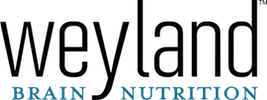Zinc
You may know zinc as the gunk you put on your nose when you go to the beach so you don’t get sunburned, but zinc is an essential micronutrients that is critical to your body’s survival and good health. Zinc deficiency has been linked to stunted growth, reduced cognitive functions, skin conditions, and mood disorders or issues.
One of the first and most obvious symptoms of a zinc deficiency is anorexia, or loss of appetite (not to be confused with anorexia nervosa, the mental illness).[1] Athletes should be particularly careful of their zinc levels, since zinc is generally lost through sweat.
It’s relatively easy to get enough zinc through a normal diet; it’s found in most meats, eggs, and some seafood. So vegetarians and vegans should consider supplementing their zinc intake, especially.[2]
Zinc gluconate is one of the more effective ways to maintain normal zinc levels in your body, more effective than its counterpart, zinc citrate. Zinc gluconate will generally take up to four weeks to fully show the benefits of the supplementation.[3]
Zinc may be an effective supplement to some anti-depressants, such as imipramine, because anti-depressants of that nature tend to inhibit serotonin uptake,[4] which is a necessary part of feeling happy and healthy. Zinc plays a vital role in mitigating the effects and increasing serotonin uptake.
In a way, zinc can act almost like an SSRI – short for “selective serotonin reuptake inhibitor” – which basically means that it stops your body from re-absorbing too much serotonin before it can be properly circulated and processed throughout your brain. Zinc enhances serotonin uptake in brain cells so that it is better absorbed and circulated.[5]
Zinc levels in depressed persons are typically lower than in non-depressed persons, and the lower the zinc level, the worse the depressive symptoms.[6,7] Rats who were subjected to a zinc deficiency began to exhibit symptoms congruent with depression, as well as general behavioral issues including reduced ability to fight off stress. When zinc was re-introduced into the diet, the symptoms disappeared.[8]
Human trials have also revealed that zinc can effectively combat depression when used with or without an anti-depressant – patients who were given zinc alongside an SSRI saw improvement over patients who were given a placebo instead of zinc.[9] Overweight patients with depression also saw improvement when given zinc supplements alone.[10] One way that zinc is thought to combat depression is by inhibiting a chemical known as glucose synthase kinase-3β, which is often tied to depression.[11]
Zinc can also be an effective supplement, alongside D-amphetamine, for treating ADHD. Children with ADHD who were given a zinc supplement for 3 months, in conjunction with D-amphetamine, were able to function on 37% less D-amphetamine by the end of the trial.[12] While zinc on its own doesn’t seem to be able to treat ADHD, it can help reduce the amount of drugs that you need to take.
Zinc may also be an effective supplement for OCD, or Obsessive Compulsive Disorder. It’s been shown to increase benefits from fluoxetine therapy (a common treatment for OCD patients) and reduce OCD symptoms.[13]
Zinc deficiency can also affect your memory. Since zinc is often found in high levels in the hippocampus, which is one of your major memory centers responsible for memory creation, low levels of zinc can lead to difficulty forming new memories.[14] Beware, though; too much zinc can also hurt your memory, so always follow proper dosing. Typically, you would need to take an extreme excess of zinc in order to see real damage to your memory, while taking enough to maintain healthy zinc levels can help improve memory formation.[15]
Zinc is important to maintaining mental health, both emotionally and cognitively, but it can also be important to your physical health. Zinc has been shown to help lower cholesterol levels in overweight children with diabetes, as well as having beneficial effects on insulin levels.[16] Zinc can also help infertile men circulate more testosterone.[17]
All Weyland Brain Nutrition products are manufactured in the USA at an FDA inspected cGMP and 3rd party rated facility. We guarantee your satisfaction or we will refund 100% of your purchase, including shipping costs for up to one bottle of each Weyland Brain Nutrition product per customer.
References
1. http://jn.nutrition.org/content/130/5/1493S.full
2. http://examine.com/supplements/Zinc/
3. http://www.ncbi.nlm.nih.gov/pubmed/3630857
4. http://www.ncbi.nlm.nih.gov/pubmed/13130511
5. http://www.ncbi.nlm.nih.gov/pubmed/15723351
6. http://www.ncbi.nlm.nih.gov/pubmed/9276075
7. http://www.ncbi.nlm.nih.gov/pubmed/8071476
8. http://www.ncbi.nlm.nih.gov/pubmed/19463882
9. http://www.ncbi.nlm.nih.gov/pubmed/23602205
10. http://www.ncbi.nlm.nih.gov/pubmed/24621065
11. http://www.ncbi.nlm.nih.gov/pubmed/17100580
12. http://www.ncbi.nlm.nih.gov/pubmed/21309695
13. http://www.ncbi.nlm.nih.gov/pubmed/22465904
14. http://www.ncbi.nlm.nih.gov/pubmed/19183867
15. http://www.ncbi.nlm.nih.gov/pubmed/15639165
16. http://www.ncbi.nlm.nih.gov/pubmed/21028969
17. http://www.ncbi.nlm.nih.gov/pubmed/7271365
